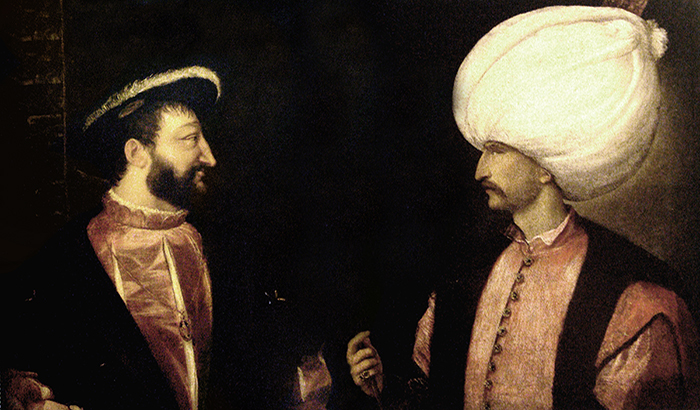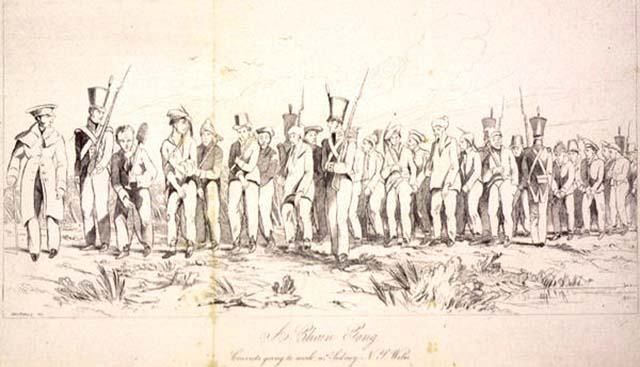
Spain Charles V inevitably had to turn into the main opponent of the Turkish empire. It was one of sources of power of the German emperor whose troops Turks faced at the advance on the Balkans, and the main force among the Christian states resisting to the Ottoman empire in the Mediterranean Sea. Vassals Ports in North Africa — first of all Algeria and Tripoli — existed due to attacks on the Spanish possession in the Southern Italy and Sicily, on the Spanish ships. And the amplified prosecution of morisk and marran generated by the conflict in Spain caused a new wave of emigration — and first of all in possession of the sultan. The part of emigrants managed to achieve influential situation in Constantinople at court of Suleyman Velikolepny and diligent warmed up there the anti-Spanish moods which, however, were already generated by the most developed situation and influenced plans of the Turkish padishah more and more. In essence, Port threatened not Western Europe in general, but to certain countries, and first of all possession Gabsburgov therefore objectively it was an ally for all forces counteracting the Roman Empire, and first of all for camp of the Reformation. In the well-known theses of Luther of 1517 (which were condemned by the father in 1520) The 34th thesis is specially devoted to the Turkish threat. It is specified in it that to battle against Turks would mean to resist condemnation supreme human sins and defects. Luther protected the same thesis in 1520 and 1521 in the objections on the papal bull about its excommunication from church. However in the late twenties Luther’s statements gain absolutely other character. In October, 1529 he already declared: “I to death will fight against Turks and the Turkish god”. In what there was a reason of full change which was undergone by a position of the spiritual leader of princely reformation? The international situation changed. In 1517 threat of a new Turkish campaign to Hungary and through it — to Germany did not seem close. In the Turkish expansion the Mediterranean direction prevailed, and here the organization of repulse was care of papacy — the main enemy of the being born Protestantism. Fight against Turks had to accept inevitably nature of fight against incorrect under domination of the father — not surprisingly, что.в Luther’s consciousness it seemed attempt at authority and Lord’s commands especially as the church tradition learned: Atilla — “scourge of god”. (By the way we will note that other theologians went further, trying to present the Turkish promotion as execution of predictions of Daniil and other prophets of the Old Testament. Luther objected to such interpretations of the Bible.) In 1529 after battle at Mokhache invasion to Austria began. War against Turks had to be waged under domination of the emperor who just at this time was at enmity with the Roman throne now. But at the same time did not come — and could not come — and strong reconciliation of Charles V with Protestant princes as whose ideologist Luther acted. His statements reflected fear that dispute of Protestant princes with the emperor will lead to a gradual gain of Germany the Turkish hordes, to Islam victory over Christianity. However in the same lampoons where Luther called for unity against the approaching Turks, he steadily reminded that against the father and doctrines of Rome it is necessary to battle against the same energy, as against the sultan and Muslim belief. Repeating in the compositions — up to the last of them — that invasion incorrect — a sign of God’s anger, punishment of sinful Europe that therefore “the Turk — our school teacher”, Luther urged not to fall into despair, defeatism and repentance to deserve forgiveness and disposal. Erasmus Roterodamus divorced Luther in an assessment of ottoman danger, but considered that progress of the sultan really is a consequence of perversity of Christian society and that changes to the best can win to it respect and friendship of the terrible enemy. The American historian S. A. Fischer-Galati in the special monograph “Ottoman imperialism and the German Protestantism. 1521 — 1555” comes to the following conclusion: “Protestants readily connected the problems which arose for Gabsburgov as a result of direct and indirect ottoman aggression with the fight for existence, for consolidation of the positions and expansion in Germany. Almost all main concessions which are pulled out at Gabsburgov since 1526 were connected with ottoman actions in Eastern and Western Europe, and in all major campaigns of Lutherans for legal recognition in Germany the unresolved conflict Gabsburgov and Ports because of Hungary was operated”. (The Hungarian Calvinist magnates in the second half of the 17th century also asked for the help Turks against Vienna.) The line of contact between two conflicts is traced first of all in the sphere of finance. Just abuse of papacy of sums of money which it took from various countries under the pretext of equipment of a new crusade against Turks and served one of the main occasions by the beginning of the Reformation in Germany. The emperor Charles V became the uniting force in fight against Turks and at the same time against the reformational movement. At the same time to expose rather numerous army capable to stop Turks, Karl needed large monetary subsidies, and to achieve them from the Reichstag where influence of Protestant princes was strong, it was impossible without satisfaction of part of their requirements. As a result in the period of the greatest danger from Turks the greatest concessions to Protestantism which then it was not possible to refuse were made. The Turkish invasion in a certain measure promoted that the statement of Protestantism accepted irreversible character. The question of implementation approved in five years before, in 1521, but not realized decision putting Luther as the heretic beyond the law was discussed at a meeting of the Reichstag in Speyer in 1526. However and the new Reichstag evaded from implementation of the former resolution: uncountable Turkish hosts approached Hungary, and it was impossible to allow the serious internal conflict in Germany. The similar situation developed also in 1529 during a siege Turks of Vienna. After retreat of army of Suleyman Velikolepny Karl tried to draw more rigid line against Protestants. Creation of Shmalkaldensky league which main organizer — the prince Philip Gessensky — obviously built the calculations taking into account a possibility of new Turkish approach was result. Also the Charles V writing in July, 1531 that he will be forced to go to the agreement with Lutherans probably could not ignore it. For a row of the next years the most direct connection between Karl’s fight against Turks remained and against Shmalkaldensky league — the aggravation of one led another to easing. But the interrelation between two conflicts was shown not only in Germany. The German emperor as the king of Spain was the main force resisting to Turks in the Mediterranean Basin, and this fight demanded the big tension of forces. It, in essence, excluded a possibility of wide use of resources of Spain and the Italian possession of the empire in fight against Protestant party in Germany. It should be added to it that in the won European countries of Port not only did not prevent, and promoted existence and development of all forms of Protestantism among the Christian population rather. But there is no Turkish gain — Catholic Counter-Reformation would try to destroy all traces of “heresy”. In general in the first three — decisive for Protestantism — decades it could win time for the organization of the forces and consolidation of the ranks in huge degree thanking “the Turkish threat”. In other words, the proceeding vain attempts to solve in the armed way the old intra reformational conflict with special distinctness revealed impossibility of the military solution of new, more fundamental, interreformational conflict. The purposes of one conflict and constantly conflicted further to the purposes of another. It is characteristic that Jesuits, having by hook or by crook settled in Constantinople, were engaged not in the missionary sermon turned to incorrect, and denunciations to the sultan authorities on the Protestants and orthodox Greeks living in the city. At the same time Jesuits continued this activity decades up to at least to the middle of the 17th century
Chernyak E. B. Century conflicts






Leave a Reply